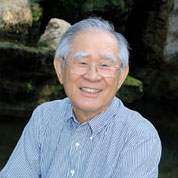|
Home
>
About Donation & Transplantation
|
Organ Donation and Transplantation Save LivesOrgan donation begins with a person who recognizes an opportunity to help others, enrolls in a state donor registry, and shares the decision to be a donor with family members and friends. The culmination of the process occurs when the person donates—and saves or enhances the lives of as many as eight people who need an organ transplant. In the United States, the Health Resources and Services Administration of the U.S. Department of Health and Human Services has oversight of the Organ Procurement and Transplantation Network (OPTN). |
Giving an Organ: Donation
Organ donation is the surgical process of providing one or more organs to be used for transplantation into another person. Organ donors can be deceased or living.
> Find out more The links below provide an overview of the process of deceased organ donation. 
|
Getting an Organ: TransplantationTransplantation is the process of surgically transferring a donated organ into a patient with end-stage organ failure. The links below provide information about organ transplantation. 
|
|||||||||||||||||||||||||||||||||
|
KEY LOCAL ORGANIZATIONS IN THE DONATION AND TRANSPLANT PROCESS Organ Procurement Organizations Transplant Centers Local Hospitals |
TERMS AND TOPICS Allocation—The process of determining how organs are distributed. Brain Death—Brain death occurs when the brain is totally and irreversibly non-functional. Brain death is caused by not enough blood supply of oxygen which causes the brain cells to die. Candidate—A patient who has been placed on the National Waiting List for solid organ transplantation. BRAIN DEATH Individuals who are brain dead can be organ donors and their organs can be used for transplantation. RELIGIOUS VIEWS ON DONATION Most religions support organ and tissue donation as a charitable act of love and giving. |
HEALTHFUL HABITS TO REDUCE YOUR RISK There are many reasons why people suffer end-stage organ failure and need an organ transplant and why others are not accepted as organ donors. Some reasons are totally out of their control. However, there are some things we all can do to help reduce our risk of acquiring a chronic disease that could lead to end-stage organ failure or limit our chances to donate. ORGAN AND TISSUE DONATION FROM LIVING DONORS While most solid organ and tissue donations occur after the donor has died, some organs and tissues can be donated while the donor is alive. |
|
|||



